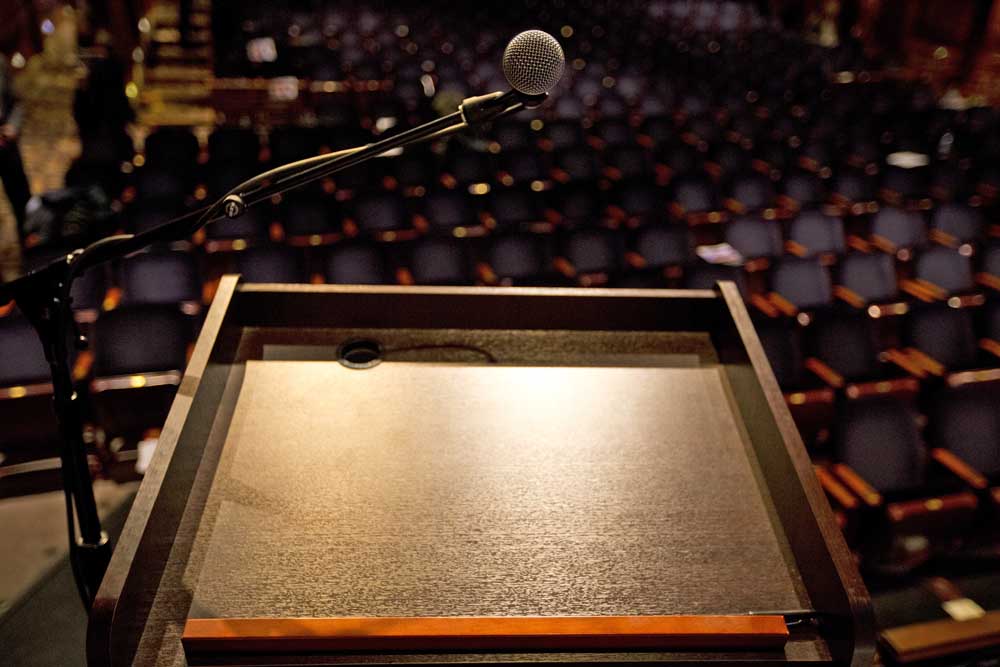Guest column: Protest injustice in a clear way
Published 12:00 am Thursday, August 2, 2018

- Guest Column
I have been reading for months about the unfair boycotting by teams of Colin Kaepernick and other NFL players who “took a knee” during the singing of the national anthem to protest racial injustice and police brutality.
All their supporters say it is an issue of free speech protected by the First Amendment to the Constitution. All those who were offended by it say it showed a huge disrespect for our flag and country. Penny Nakamura’s guest column in The Bulletin reiterated the free speech argument, and refuted the respect for flag and country issue.
Trending
Nakamura is an excellent writer who wrote for The Bulletin for many years. I have enjoyed her pieces many times, and respect her need to express her views about injustices.
However, when she states, “Taking a knee is not about disrespecting the flag or disrespecting those who have served in the military. It’s a protest to shed light on the fact that black lives do matter,” she fails to recognize that the very important message of racial injustice got totally lost in the method selected to express it.
Many people in this country were offended by the act of kneeling during the anthem, regardless of the noble objectives stated later by the kneelers and their supporters.
Here is a little discussed fact that has relevance to this debate. Section 301 of Chapter 3 of Title 36 of the U.S. Code is titled “National Anthem.”
It says in part: “Conduct During Playing. During a rendition of the national anthem…. all other [military personnel had different rules stated] persons present should face the flag and stand at attention with their right hand over the heart” [emphasis added].
The U.S. Code is not law per se, but it is based on referenced public laws enacted by Congress. Whether kneeling during the performance of the national anthem is a crime or not is best left to legal and constitutional scholars to argue.
Trending
But the point is clear. Congress and the country desired all citizens to show respect for the flag and their country.
First Amendment arguments are interesting, but hardly relevant to the intent of Congress and the law which precipitated the code, which has never been challenged as unconstitutional. But U.S. Code aside, there is an even more compelling argument for standing during the national anthem.
The motivation may be to protest injustice, but a large part of the country did not get that message. If you are going to protest injustice, there has to be a better venue than during the playing of the national anthem to voice that protest.
Colin Kaepernick has done an amazing amount of charitable and educational work, donating large amounts of money to many organizations.
He clearly is someone whose heart is in the right place. He just got the presentation wrong, as his kneeling message was and will continue to be interpreted as disrespect for flag and country, no matter how many times someone argues that it was not. He could have chosen to carry a small American flag, for example, and delivered a message of protest and patriotism simultaneously.
And now we have school employees in Eugene kneeling in schools during the national anthem.
I am tempted to say “Only in Eugene,” but unless we come up with a clearer way to protest injustice, I am sure we will have others elsewhere following their lead.
I challenge Kaepernick and Nakamura and others who are rightly passionate about this issue to come up with a better way to protest racial injustice than to do something that appears to insult our flag and country.
Regardless of motives, if you express your message in a way that is destined to be misunderstood, you are going to alienate people from your cause and fail to achieve your objectives.
— Dennis Dietrich is a retired forester living outside of Bend.








